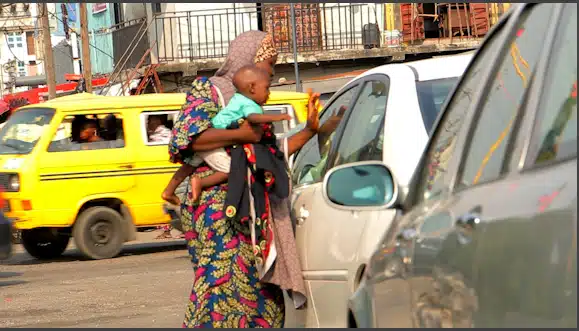Nigeria News
Lagos Assembly Seeks To Ban Street Begging

Members of the Lagos State House of Assembly deliberated on Tuesday over the prospect of enacting a law to combat street begging throughout the state.
This proposed law would also criminalize the act of offering money to street beggars.
The Speaker of the House, Rt. Hon. Mudashiru Obasa, voiced his agreement with fellow lawmakers during the plenary session, characterizing street begging as a growing menace within the state. He asserted that criminal elements had infiltrated the streets under the guise of beggars.
In response to the motion presented by Hon. Abiodun Orekoya and his colleagues, Dr. Obasa acknowledged the previous efforts made by administrations in the state to address street begging. However, he pointed out that the issue persisted.
Dr. Obasa stressed the need for a law that would not only outlaw street begging but also impose penalties on individuals who provide money to beggars on the streets.
He said, “To tackle this issue effectively, we need to address its root causes. When you see children as young as five or six begging on the streets, it indicates the existence of organized groups profiting from this activity. They collect and provide for these beggars.”
Dr. Obasa emphasized the necessity of a comprehensive law that deals with begging and giving, and the creation of institutions to manage these issues.
The proposed law, according to Dr. Obasa, should establish a centre where individuals who wish to offer alms can do so. The centre would ensure that the alms reach those truly in need.
“The law will establish a fund managed by people of integrity, ensuring that those in need can access it,” he stated.
He also mentioned that this approach would allow people to fulfil their religious obligations regarding almsgiving while simultaneously curbing street begging, reducing crime on the streets, and promoting greater responsibility among residents.
Dr. Obasa highlighted the importance of eliminating beggars from the streets to achieve the state’s smart city goals. Beggars obstruct free movement and engage in criminal activities such as drug peddling and theft from motorists.
He raised questions about how children as young as five or six were able to travel from other states to Lagos, suggesting that some individuals might be sponsoring and accommodating them.
Dr. Obasa called for a comprehensive strategy to address the challenge and discouraged direct giving to beggars on the streets.
He also encouraged local government chairmen to devise solutions for managing street trading rather than simply attempting to remove traders from the streets.
“Street trading is a global phenomenon. It is the responsibility of our local council chairmen to come up with ideas for better regulating the activities of traders in their areas. How can you build a shop and price it at N30 million? What products will the traders sell there? If we remove them all, where do we expect them to go?” he inquired.










